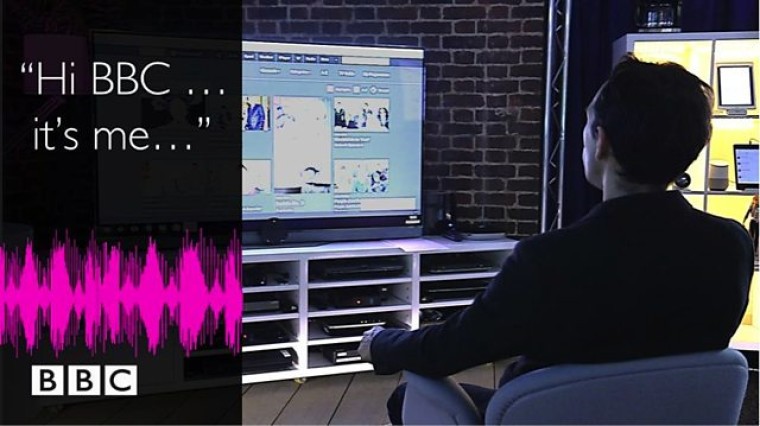
The BBC has teamed up with Microsoft to develop an experimental version of its hugely popular iPlayer video- and radio-on-demand service, infused with artificial intelligence (AI). Last year, Microsoft announced the formation of a new AI and Research Group with over 5,000 computer scientists, and the company has been exploring a huge variety of uses for AI in recent months.
Cyrus Saihan, Head of Digital Partnerships for the BBC, said today that "artificial intelligence and voice interaction are fast-developing technologies that are already available to consumers", adding:
These technologies could also have interesting use-cases in TV so for our experiment, we wanted to explore how your TV – just by hearing the unique sound of your voice – could give people a more intuitive and more personal service in the future.

Saihan said that the BBC and Microsoft have built a proof of concept showing how iPlayer could be developed to allow users to sign in simply by speaking their name and a particular phrase, rather than having to remember their username and password. iPlayer users will soon be required to sign in to use the service, so a voice recognition feature like this one would certainly be handy, although the BBC says it's "still at the very early stages for voice interfaces".
Microsoft's expertise in AI allowed the BBC to integrate working voice search features into its iPlayer concept, as Saihan explained:
As well as letting a user sign in to BBC services using their unique voice instead of a password, our internal prototype also gives a user the option to select what they want to watch by talking to their device. For example, saying “BBC…show me something funny” brings up a selection of comedy programmes. If you say “BBC…what’s going on in the world?” the BBC News channel turns on and starts playing. Saying “BBC… put Eastenders on for me” starts playing the latest episode.
He said that in the future, "when artificial intelligence and machine learning have advanced sufficiently", iPlayer users could even have a conversation with their TVs about what's on now, when the next episode of a show will be available, or whether the user would actually enjoy a particular movie or TV show. "All the time," he added, "your TV service would be learning about your preferences and getting smarter about what to suggest and when."
The BBC made it very clear that this prototype is simply "an internal experiment", and there don't seem to be any immediate plans to add these features to iPlayer in their current form. But Saihan did point out that the BBC is keeping a close eye on these technologies, and that its work with Microsoft "adds to some other internal projects that we are working on".
Source: BBC Internet Blog

















4 Comments - Add comment